Gifted and Talented News
Dr Colleen Robertson and Mrs Jessica Turschwell

Gifted and Talented News
Dr Colleen Robertson and Mrs Jessica Turschwell
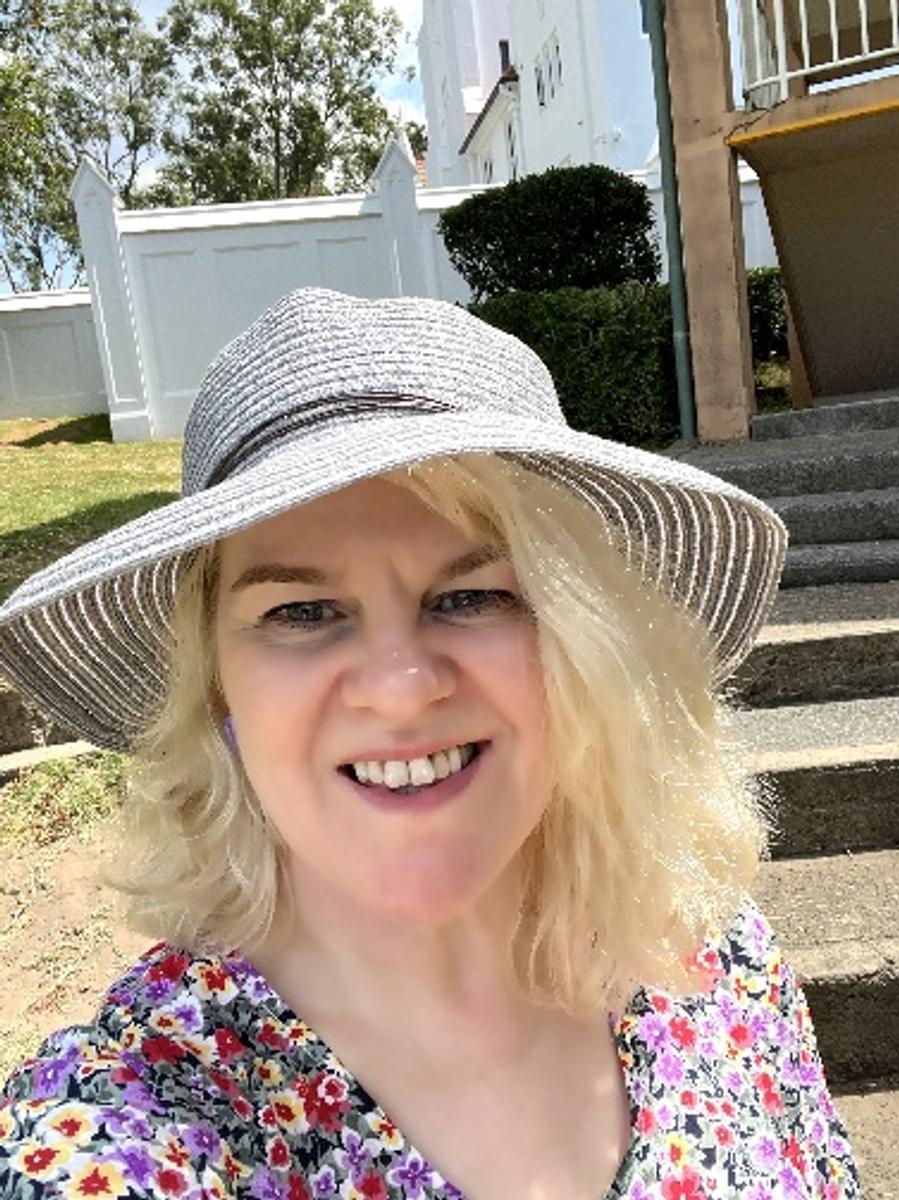

Please let me introduce myself! I am Dr Colleen Robertson, and I am the new Program Leader for Gifted and Talented Students at our College. I recently took an opportunity to explain why I refer to myself as Doc Rob. It’s quite simple really: it is easier to remember. Over the past few months, I have been addressed as Ms Robson, Miss Robinson, Miss Roberts and other variations. My favourite errors have been Dr Watson, because I would secretly like to be Sherlock Holmes’s sidekick, and Professor Robertson, which is sadly not merited, yet.
I explained to the boys in Assembly that in simple terms we can think of “gifted” as meaning being in the top 10% for aptitude in any given subject or undertaking (domain) and that “talented” means being in the top 10% in ability, or performance. But these are not fixed states. All of us are able to nurture our gifts and develop our talents if we are prepared to invest in ourselves.
At Marist College Ashgrove there are two main routes to making this investment. One is through our lively Enrichment Program. Currently, the Academic Co-curricular Program is thriving and varied. Offerings include our newly streamlined and invigorated STEM Club, the Mathematics Challenge, Brain Bee, Robotics, Public speaking competitions and Model United Nations, Future Problem Solving, OzClo - solving complex language puzzles, a newly revamped Cyber Club and a new Philosophy Club, starting in Term 2. And, of course, we have a strong, well-directed Debating Society, which allows for the most rigorous mental training and skills development.
We were pleased to present certificates in a recent assembly to recognize the achievement of boys across the school, who took part in a national test of their mathematical knowledge and abilities in the final term of last academic year.
Our Primary School boys were awarded with 10 certificates for proficiency and participation to students who were in Year 5 last year. In addition, one Certificate of Credit was awarded to a boy currently in Year 6, Thomas Di Sipio. For Year 6 attainment, 11 boys received certificates ranging from participation and proficiency to one student, Remi Sakzewski, who obtained a Distinction.
Senior boys received certificates based on last year’s performance, too. These ranged from recognition of Participation to Credit, across current Years 8 to 11, with special mention going to Clancy Barrett and Jeremy Harvey for Distinction in their Year 7 performance; Luke Garvey, for Distinction in his Year 8 performance and Daniel Rae, who earned a Distinction for his Year 10 efforts. Enormous congratulations also go to two current Year 11 students, who achieved the prestigious award of High Distinction for their work in Year 10. They are Harrison Dyer and Ashley Kani.
OzClo is the Australian Computational and Linguistics Olympiad. This is an annual competition that invites students to solve linguistics problems, in the first instance this involves a two-hour online test. Out Team of Year 10 students was ably supported by veteran competitor, Max Bathersby, who is also the Student Ambassador for Ozclo, and Jake Edye, both in Year 11. The boys tackled some challenging problems, decoding ancient and fabricated dialects, based on their knowledge of how language is structured. Well done to Lachlan Vink, Aidan Phillips, Tommy Barron and Matthew Rowston for their efforts and thanks go to Madame Del Vechhio for her enthusiasm and hands-on support.
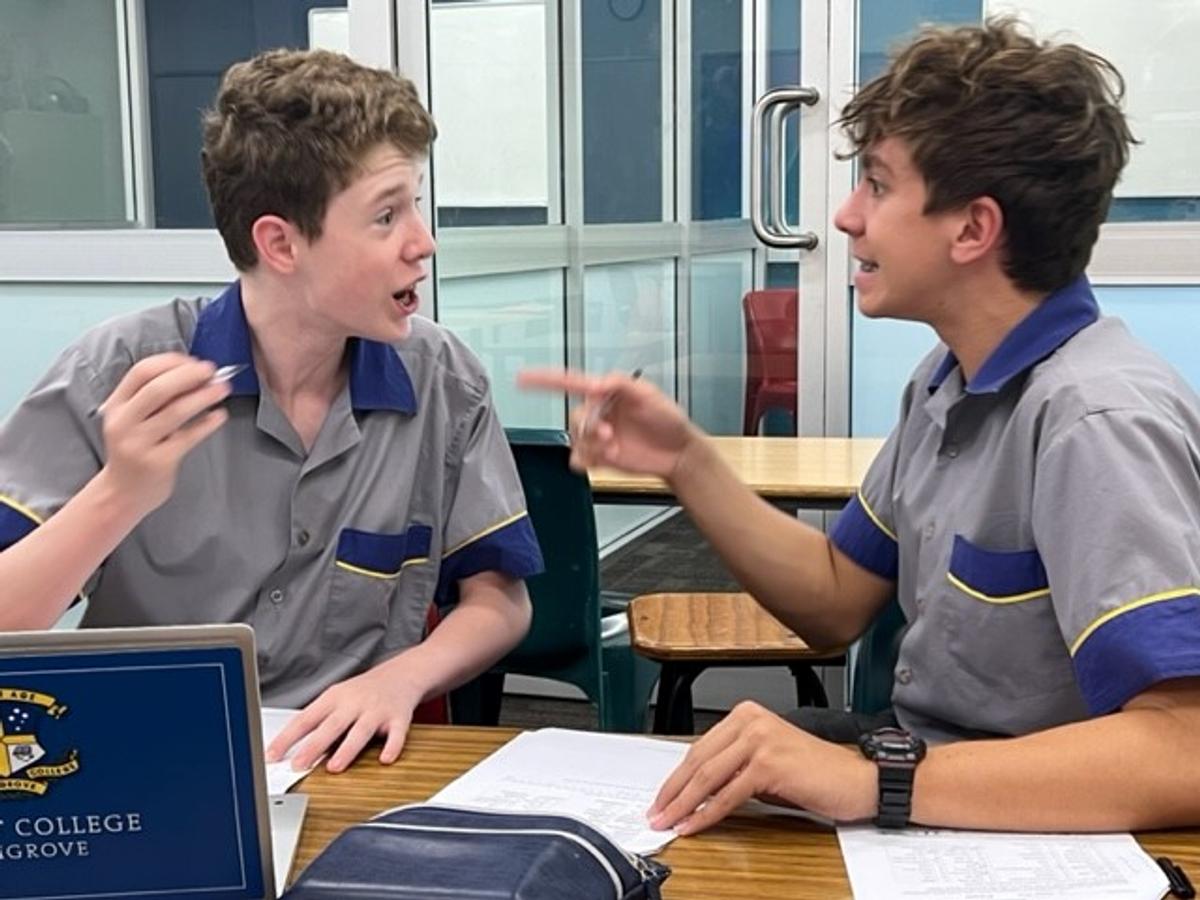

This term saw the launch of our newly streamlined STEM Club for Maths and Science aficionados in Years 7, 8 and 9. The Academic Care team have been inundated with expressions of interest and our first meeting was well attended. What makes this club so special is that each session will be run by a specialist teacher in his or her field and will address areas that extend way beyond the curriculum. The meetings will allow boys to deepen their interest and enthusiasm across Mathematics, Physics, Biology, Chemistry and Engineering.
The first meeting was a huge success and thanks go to the Year 11 Science Ambassadors and Rowan Dekkers, who writes: In our first session the boys worked in groups to construct water filters, but were given differing amounts of money to purchase equipment, as well as having to pay different prices for different materials depending on the country they were representing. We saw groups trade with each other and donate money to each other so that each country could make the best filter possible. After trying out the filtration systems, the boys found that, although some groups’ filters worked too slowly to see during the session, next morning that the water that came through those filters was the clearest – well done to Ethiopia and New Zealand.
Another session looks at rates of chemical reactions and a bespoke Physics challenge is on the cards for next term.
The club will meet on Tuesdays at 3:15pm.
Brain Bee
This year’s Brain Bee Challenge is up and running. Brain Bee offers boys in Year 10 a chance to enter a competition about our brain and how it works. Supported by the Australian Neuroscience Society and delivered by Ms Kenny, the meetings will allow students to explore many aspects about how the brain works. Boys who are keen on brain science in any way can come along for discussion, practical experiments (including dissection) and fun activities to truly delve into the potential of this fascinating organ. A dedicated team of students are preparing weekly (on Wednesday and Thursday afternoons) for the upcoming exam and I wish them lots of luck.
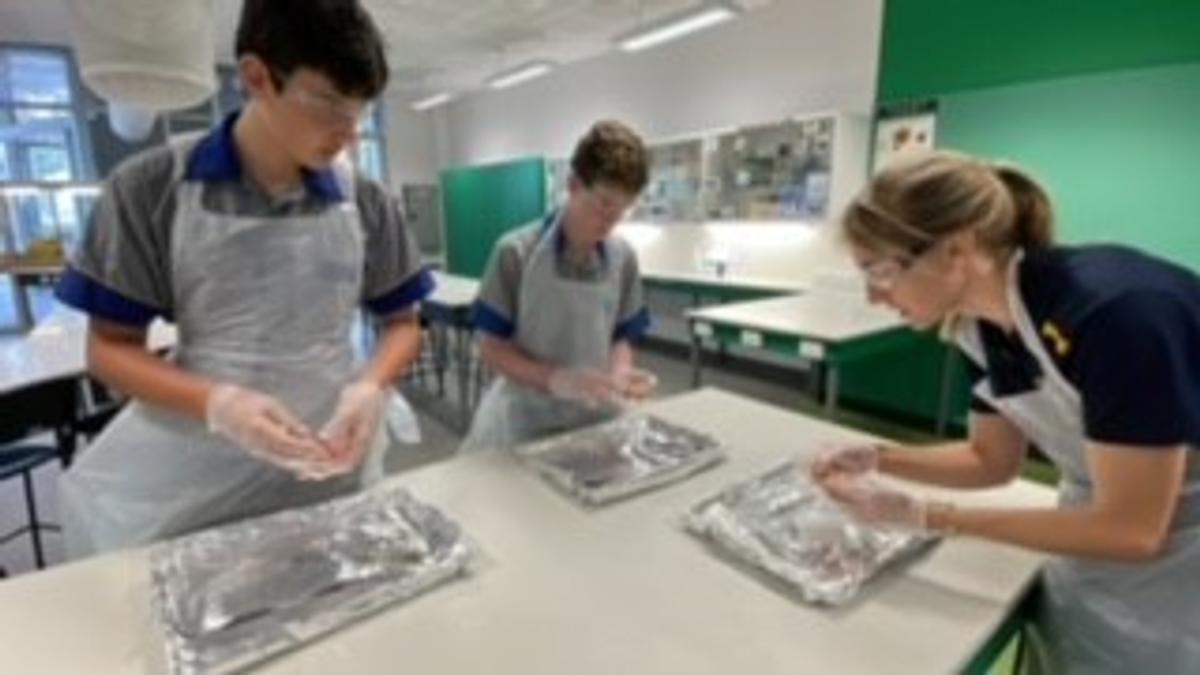
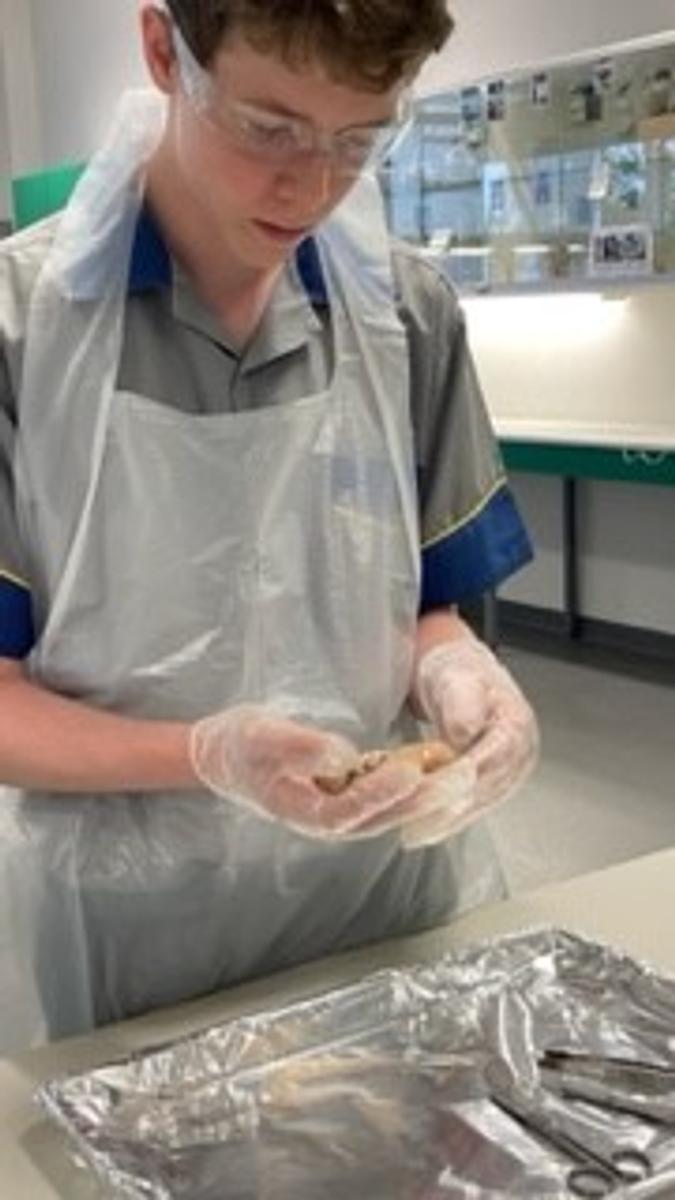


The Future Problem Solving Program (FPS) is an international educational program that focuses on developing critical, creative, and futuristic thinking skills. The program challenges students to apply their minds to some of the significant issues facing the world of today and the future. In the process, it aims to equip them with the vision, skills, and tools necessary for both designing and promoting positive futures for the society in which they live. It is one of the few academic competitions in Australia that enables students to compete internationally.
Past topics have focused on areas, including wearable technology, personalised medicine, youth in competitive sports, insects, mining and building green. Topics for 2023 include, e-waste, digital realities, the robotic workforce, and a throw-away society.
Making use of what is referred to as ‘the 6-step process’, the program asks students to brainstorm challenges and problems related to a topic; identify an underlying problem characteristic to this; brainstorm solutions; develop and apply criteria to evaluate these; and then devise a plan of action. The program not only teaches students how to think and how to use their imagination in applying research and strategies to resolving issues, but it also offers a wealth of flexible and cross-disciplinary activities that connect to all curriculum learning areas.
Model United Nations has traditionally been facilitated by students and allows a superb forum for students to learn more about politics and practice their public speaking and quick-thinking skills. This year, our Student Ambassador, Remy Versace, will work alongside Ms Sparrow to bring this quality opportunity to fresh life. I would urge anyone who wants to find out more to come along to the meetings during first break on Tuesdays.
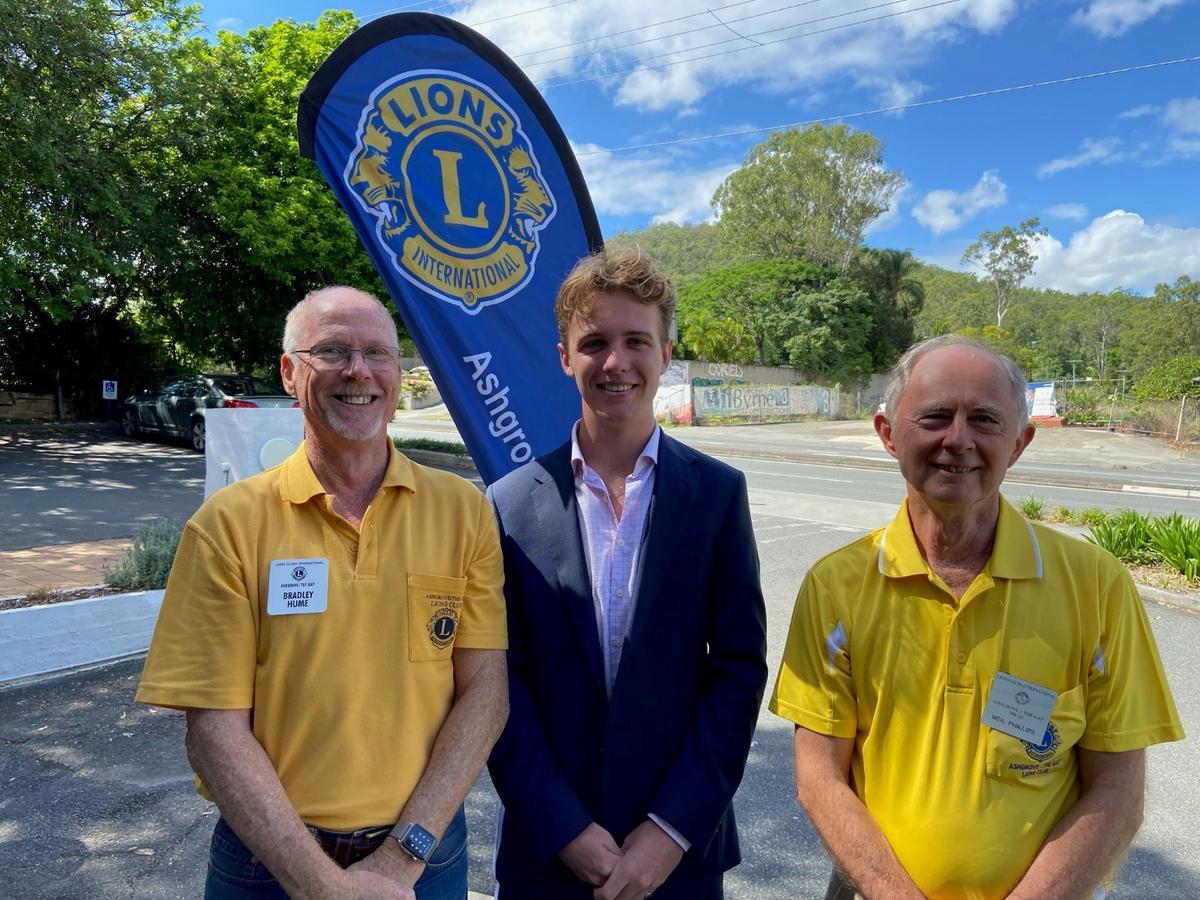

When it comes to public speaking we are all a little in awe of our School Captain, Joseph Lewis. This term already, he has given a presentation to Mr Peter Cooper of the Lions Club and on Tuesday 28 February he made a speech presentation entitled “Do I have a right to be rich?” at an evening event. When asked why he would recommend public speaking to the boys, Joe had this to say:
“Public speaking is an excellent skill to have and has been a significant contributor to the development of my confidence.”
This year’s English Speaking Union public speaking competition poses some fascinating topics for boys to engage with. Years 7 and 8 are asked to respond for 3 minutes to Anne Frank’s sentiment: “How wonderful it is that nobody need wait a single moment before starting to improve the world.” Those boys in Years 9 and 10 will be invited to speak for 4 minutes on a rousing declaration from Maya Angelou “You will face many defeats in life, but never let yourself be defeated.” The provocative topic for Years 11 and 12 is a chance to explore, in a 5-minute speech, Nelson Mandela’s claim that “education is the most powerful weapon you can use to change the world.” Heats take place in Brisbane in July, but registration has opened, and places fill quickly, so interested boys need to see Ms Gerry, who offers expert support for both established and aspiring public speakers.
The Robotics and Autonomous Systems club runs on Thursdays. It is open to boys in Years 7 to 12, a highlight of this term will certainly be an excursion organised by Mr Alpin to Insitu Pacific, which manufactures drones for the Australian Defence and commercial markets. Here, boys will benefit from viewing engineering processes to develop drones and their payloads. They will also get an understanding of all the different types of jobs available in drone companies. It should be a great experience for them. Boys who are interested in robotics are invited to speak with Mr Alpin or Ms Natoli.
Cyber Club will re-launch with a new focus and will be open to students across the Senior School. We are privileged to have Mr Adam Graham, an industry professional, come into College on a weekly basis to discuss aspects of cybersecurity and programming with interested students. Meetings will take place on Monday mornings from 7:30am in Room 406 and new members are encouraged.
Beyond co-curricular enrichment, the other route to fulfilling potential is through application in lessons. As we implement plans for revising the delivery of lessons in line with the Australian Curriculum Version 9, our teachers will embrace the opportunity to include more extension activities to allow further room to grow and develop across all school subjects. But, as I advised the boys in assembly, tapping into our gifts and talents cannot be a passive activity. Since we only get out what we put in, students need to actively engage in lessons. I provided some question prompts to allow our boys to do exactly this.
Everyday tips for students to enrich every learning experience:
And, as Professor Rob Coe convincingly puts it “Learning happens when people have to think hard,” I would urge the boys to think hard, and I invite you to bring to my attention anything you believe I should be giving thought to as I embark on delivering an excellent Gifted and Talented Program for the boys of our College.